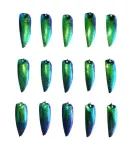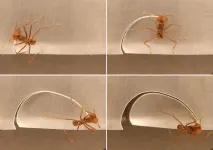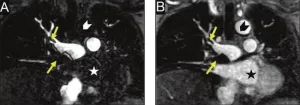(Press-News.org) The newly revised ruling on advance medical directives and withholding/withdrawing medical support for the dying in India will inevitably force some terminally ill patients to “live a life of machine-related suffering” and deprive them of their autonomy and dignity in death, suggest specialist doctors in a letter published online in the journal BMJ Supportive & Palliative Care.
While a progressive step, the 2023 ruling still has important shortcomings, they add.
In the absence of any specific legislation for the care of the dying, the right to dignified end of life care is interpreted through the Constitution of India Article 21 and Article 14, they write.
In 2018 the Supreme Court of India ruled on advance medical directives and the withholding/ withdrawal of life support in terminally ill patients. This was revised in 2023, with the aim of clarifying and simplifying several aspects of end of life care in the country.
But, say the authors, it has some major shortcomings, the first of which is the continued reference to withholding or withdrawing life support as ‘passive euthanasia’.
The use of this phrase “is likely to cause an enormous burden of guilt on families and professionals,” because of its connotations with killing, however noble the objective. “It would also invite religious objections,” they suggest.
Secondly, while the ruling simplifies the creation of an advance directive, it will be meaningless unless this change becomes widely known, say the authors.
“It is imperative to create awareness among the lay public so that people know how to create such a document and so that the notary public and gazetted officers are aware of these guidelines.”
More importantly, although less complex than the 2018 version, the new ruling on the procedure for withdrawing life support laid down by the 2023 judgement, “continues to be impractical,” insist the authors.
“For a terminally ill person on artificial life support systems, every minute of existence can be agony,” they explain, emphasising that there is no timeline required for the second of the two authorising committees to make a decision.
“While we understand the importance of caution and safeguards, such cumbersome procedures will lead to avoidance of withholding or withdrawing artificial life support in the context of futility of treatment, or at best referral to higher centres under such circumstances adding to the anguish of patients and caregivers,” they write.
Another important omission is the failure of the new ruling “to consider the existing injustice in access to healthcare and in the overall organisation of the healthcare system in India,” in the absence of universal health coverage, explain the authors.
“As a result, the ruling only meets the needs, if at all, of a small portion of the population,” they add.
And lastly, the procedure for revoking an advanced directive, should preferences change, remains cumbersome, they argue.
They conclude: “In the 21st century due to advancement in the field of medical science, it is possible for a human to stay alive with the help of machines for extended periods of time. In these circumstances, it is important to give the individual a right to refuse treatment.
“It is important to understand that by refusing treatment, a patient is not attempting suicide, but is merely following the natural course of nature that would have existed had such advances not occurred.
“It is important to remember that while drugs and devices prolong life, they can significantly reduce quality of life. Therefore, a person must have the right to refuse treatment and the choice to live with the quality of life of their choice and should not be forced to live a life of machine-related suffering.”
END
New ruling on care of dying will force some to live life “of machine-related suffering”
Progressive step, but ruling still has important shortcomings + missed opportunities, say specialists
2023-06-23
ELSE PRESS RELEASES FROM THIS DATE:
Global diabetes cases to soar from 529 million to 1.3 billion by 2050
2023-06-23
***Embargo: 23.30 UK time / 18:30 ET / 15:30 PT Thursday, 22 June 2023***
SEATTLE, Wash. June 22, 2023 – More than half a billion people are living with diabetes worldwide, affecting men, women, and children of all ages in every country, and that number is projected to more than double to 1.3 billion people in the next 30 years, with every country seeing an increase, as published today in The Lancet.
The latest and most comprehensive calculations show the current global prevalence rate is 6.1%, making diabetes one of the top 10 leading causes of death and disability. At the super-region level, the ...
Surrey expert recognized on International Women in Engineering Day
2023-06-23
The Women’s Engineering Society has named the University of Surrey’s Dr Kelly Kousi as one of the finalists in its Top 50 Women in Engineering Awards (WE50) 2023: Safety and Security. The announcement coincides with International Women in Engineering Day 2023, a celebration of women in engineering.
Dr Kousi, a lecturer in the School of Chemistry and Chemical Engineering, leads a research group of scientists and engineers who work on emission control, synthetic fuel production ...
Gloss is less effective camouflage in beetles compared to matte, according to latest study
2023-06-23
When combined with iridescent colouration, a matt target surface appearance confers greater survival benefits in beetles than a glossy surface, scientists at the University of Bristol have found.
The findings, published in Behavioural Ecology, suggest that iridescence provides camouflage independent of glossiness, which means that it is the colour of iridescent surfaces and its changeability, that is the most important aspect of iridescence in enabling camouflage.
Iridescence is a type of structural colouration that produces bright, vibrant hues. These are often angle-dependent, meaning the observed colour appears to ...
UW–Madison researchers reveal how key protein might help influenza A infect its hosts
2023-06-23
Influenza A is one of two influenza viruses that fuel costly annual flu seasons and is a near constant threat to humans and many other animals. It's also responsible for occasional pandemics that, like the one in 1918, leave millions dead and wreak havoc on health systems and wider society.
Influenza A was first identified as a health threat nearly a century ago, but only in the last decade have scientists identified one of the virus’s key proteins for infiltrating host cells and short-circuiting their defenses. Now, a team of researchers at the University of Wisconsin–Madison have taken a major step toward ...
CU professor leads study on discontinuing therapy for MS patients over 55
2023-06-23
AURORA, Colo. (June 22, 2023) – An article published today in the journal Lancet Neurology evaluates the risk of recurrence of active disease in older patients with multiple sclerosis after discontinuing disease-modifying therapies.
Multiple sclerosis (MS) is a chronic illness, often presenting in young adulthood. Most commonly, at onset, individuals have acute attacks, or relapses, of intermittent new neurological symptoms such as vision changes, numbness, and weakness that may come and go, seemingly randomly, and then remit completely or incompletely. ...
Mystery of how leaf-cutting ants gauge leaf portion size revealed
2023-06-23
They might not be able to leap tall buildings with a single bound, but leaf-cutting ants are insect superheroes, capable of carrying leaf pieces up to six times their body mass to cultivate fungus in their borrows. But how do the charismatic creatures determine the size of the fragments they carve with their mandibles? Do they use their bodies as a simple ruler, or do they use information about the position of their bodies to adjust how far they cut, adapting to the thickness of a leaf while dismembering it? Knowing that the insects alter the trajectory of a cut when sculpting ®Parafilm of different thicknesses, Flavio ...
Ramón Barthelemy wins 2023 LGBTQ+ Educator of the Year
2023-06-22
Out to Innovate is proud to announce the winners of its 2023 recognition awards for lesbian, gay, bisexual, transgender, and queer (LGBTQ+) professionals in science, technology, engineering, and math (STEM). Out to Innovate has recognized exemplary individuals with LGBTQ+ Educator, Engineer, and Scientist of the Year for over 15 years.
2023 LGBTQ+ Educator of the Year: Ramón S. Barthelemy, Ph.D
The LGBTQ+ Educator of the Year award recognizes an educator who has significantly impacted STEM students through teaching, ...
Switch to MR angiography for PE mitigated impact of recent contrast shortage
2023-06-22
Leesburg, VA, June 22, 2023—According to an accepted manuscript published in ARRS’ own American Journal of Roentgenology (AJR), preferential use of pulmonary MR angiography (MRA) for diagnosing pulmonary embolus (PE) in the general population helped conserve iodinated contrast media during the 2022 shortage.
“This single-center experience demonstrates use of pulmonary MRA as a practical substitute for pulmonary CTA in emergency settings,” concluded lead investigator Jitka Starekova, MD, from the radiology ...
UW–Madison researchers reveal how the influenza A more effectively infect its hosts
2023-06-22
Influenza A is one of two influenza viruses that fuel costly annual flu seasons and is a near constant threat to humans and many other animals. It's also responsible for occasional pandemics that, like the one in 1918, leave millions dead and wreak havoc on health systems and wider society.
Influenza A was first identified as a health threat nearly a century ago, but only in the last decade have scientists identified one of the virus’s key proteins for infiltrating host cells and short-circuiting their defenses. Now, a team of researchers at the University of Wisconsin–Madison have taken a major step toward understanding how that protein works, ...
Powerful board allies are a CEO's best weapon
2023-06-22
If we’ve learned anything from HBO’s smash hit Succession over the last four years, it’s that, as the authors of a new Strategic Management Journal article state, “Even the most powerful individuals do not work alone.” Given that, whether (SPOILER ALERT!) Tom succeeds in his new role depends less on his business acumen than on who the new CEO has as his allies.
In the upcoming article “Can powerful allies protect the CEO against performance declines? The role of the CEO’s subgroup power in CEO dismissal,” authors Jihae You, Taekjin Shin, and Yunhyung Chung, explore ...
LAST 30 PRESS RELEASES:
Bug beats: caterpillars use complex rhythms to communicate with ants
High-risk patients account for 80% of post-surgery deaths
Celebrity dolphin of Venice doesn’t need special protection – except from humans
Tulane study reveals key differences in long-term brain effects of COVID-19 and flu
The long standing commercialization challenge of lithium batteries, often called the dream battery, has been solved.
New method to remove toxic PFAS chemicals from water
The nanozymes hypothesis of the origin of life (on Earth) proposed
Microalgae-derived biochar enables fast, low-cost detection of hydrogen peroxide
Researchers highlight promise of biochar composites for sustainable 3D printing
Machine learning helps design low-cost biochar to fight phosphorus pollution in lakes
Urine tests confirm alcohol consumption in wild African chimpanzees
Barshop Institute to receive up to $38 million from ARPA-H, anchoring UT San Antonio as a national leader in aging and healthy longevity science
Anion-cation synergistic additives solve the "performance triangle" problem in zinc-iodine batteries
Ancient diets reveal surprising survival strategies in prehistoric Poland
Pre-pregnancy parental overweight/obesity linked to next generation’s heightened fatty liver disease risk
Obstructive sleep apnoea may cost UK + US economies billions in lost productivity
Guidelines set new playbook for pediatric clinical trial reporting
Adolescent cannabis use may follow the same pattern as alcohol use
Lifespan-extending treatments increase variation in age at time of death
From ancient myths to ‘Indo-manga’: Artists in the Global South are reframing the comic
Putting some ‘muscle’ into material design
House fires release harmful compounds into the air
Novel structural insights into Phytophthora effectors challenge long-held assumptions in plant pathology
Q&A: Researchers discuss potential solutions for the feedback loop affecting scientific publishing
A new ecological model highlights how fluctuating environments push microbes to work together
Chapman University researcher warns of structural risks at Grand Renaissance Dam putting property and lives in danger
Courtship is complicated, even in fruit flies
Columbia announces ARPA-H contract to advance science of healthy aging
New NYUAD study reveals hidden stress facing coral reef fish in the Arabian Gulf
36 months later: Distance learning in the wake of COVID-19
[Press-News.org] New ruling on care of dying will force some to live life “of machine-related suffering”Progressive step, but ruling still has important shortcomings + missed opportunities, say specialists




